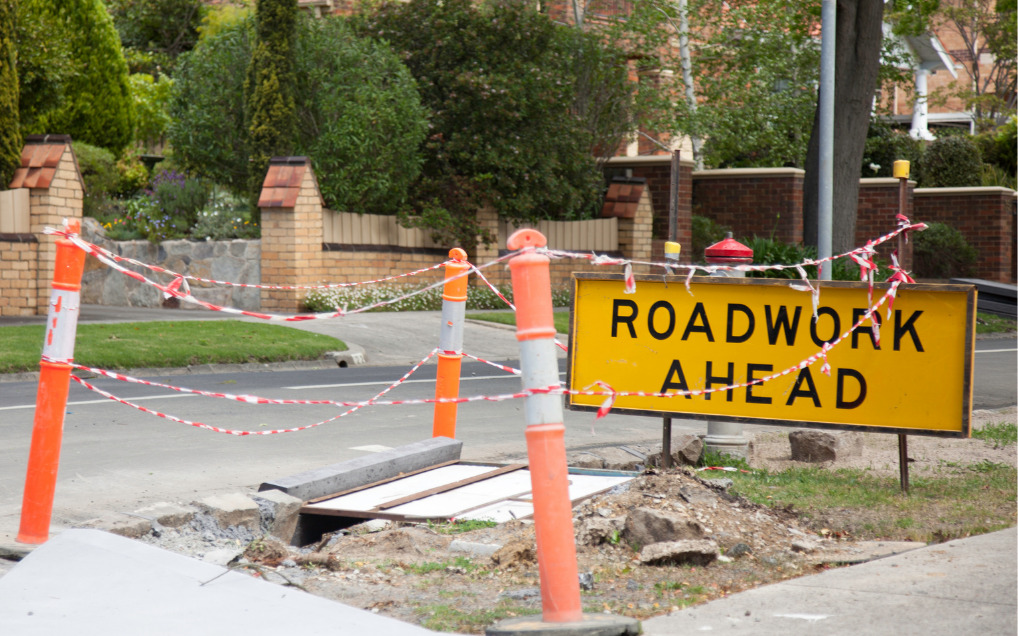“Most people think of disasters as being the big things such as fires, floods, and other natural disasters. But in reality, it can be the smaller disruptions, such as losing your power or losing your internet access, that can stop you from operating.”
Catherine Thompson owns a small consultancy in the Snowy Monaro region and she knows even minor disruptions that don’t make it onto the TV news can have a harmful effect on your business.
She says: “I live in a remote locality, and I rely very heavily on working off the internet. So when the internet goes down in my regional area, I’m not able to do my business.”
“Not having the internet may be a small thing, but it has a big impact for those of us that work predominantly online.”
So when we talk about disaster management, as well as dealing with big shocks we need to consider business disruptions or ‘smaller’ disasters. Because we guarantee that every business will experience a disruption at some stage.
You can plan for disruptions using the 80/20 rule
The Pareto principle (also known as the 80/20 rule) is a phenomenon that states that roughly 80% of outcomes come from 20% of causes.
So if you plan for disruptions using the 80/20 approach it won’t matter whether the disaster is large or small – the approach to disaster preparation will be the same for 80% of the disasters your business is likely to experience.
6 Steps to mitigate the effects of disruptions
When thinking about how to help your business survive future disruptions or disasters, ask yourself:
- What would make my business ready to adapt?
- How can I prepare before a disaster?
- How do I keep trading during a disaster?
- What do I need to get my business back up and running?
The more you know about what could disrupt your business, the more you can do to prevent it.
Here are 6 steps to mitigate the effects of disruptions.
- Identify risks
Identifying risks is an important first step in risk management. Consider those negative risks that you have control over and risks that you cannot control. The more informed you are about your risk, the better you’ll be able to manage it.
- Identify what is critical to your business
Make a list of the processes, critical needs and workflows you need to keep trading. It could be accounting, payroll, stock control, customer service or anything else that’s vital to your business’s success.
The more you and your staff know about what your business needs to keep operating, the more resilient your business will be.
- Have a plan for disasters
The proper preparation can mean the difference between surviving a disruption or not.
A business continuity plan should identify which business functions are essential and how you’ll continue to fulfil the needs of your customers.
Review the plan regularly to make sure that it’s up to date and relevant.
In the case of Catherine, she has a contingency plan for when her internet access fails. “If I can’t access the internet I’ll focus on other areas of my business that don’t rely on the internet, such as doing finances, developing plans, creating projects and templates.”
“Otherwise I’ll try to access it using a satellite system that’s available in neighbouring houses or I’ll connect my laptop to the mobile network. If necessary I will duck into town, which is about an hour away.”
- Empower your team
You should make sure your team knows what their role is in the plan and how important it is to follow the plan. This can be done through regular safety and preparedness discussions with your team.
- Communicate with partners
If a disruption occurs make sure you communicate any changes to your business to your customers and suppliers as soon as possible. You can publish a post on social media, update your website and Google My Business listing or call and email them directly.
- Act quickly
In the midst of a crisis, there are no perfect solutions – it’s more important to take action quickly. Imperfect action can be tweaked. Doing nothing, while waiting on the perfect solution, cannot be improved!
corporate2community is a certified social enterprise with a collective of local and international experts providing solutions to businesses, communities and governments – before, during and after natural and unnatural disasters.
Read more about the solutions we offer here.


Recent Comments